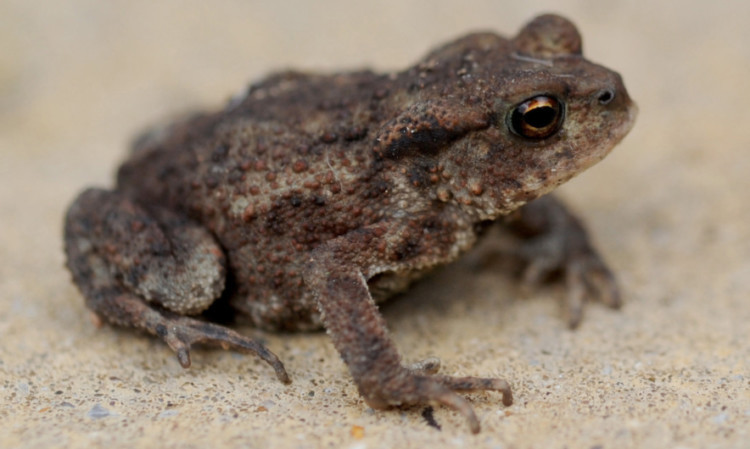Specially-designed measures are being put in place in Angus to save amphibians and reptiles from a “slow, lingering death”.
Members of Friends of Angus Herpetofauna (FAH) have secured permission from Angus Council to install and trial “ladders” at two sites in the county.
Roadside drains have long been a problem for amphibians and other small animals as they act as pitfall traps, from which they have no means of escape.
Members of the group have now installed 25 ladders at a site to the north of Dundee and a further 12 at a problem area in Carnoustie.
During installation of the ladders, 20 frogs, 33 toads and six newts were found in the drains and were released at breeding ponds nearby.
The ladder design is based on extensive work carried out recently in Holland by the conservation organisation Ravon. Its design was adapted to suit conditions in Angus.
The ladders are made of steel sheet, cut to length to suit each drain and then bent to form a gradually-reducing incline which levels out underneath the cover.
The steel is then covered in jute, which will provide frogs, toads and newts with a climbing frame, allow them to reach the underside of the drain cover and then hop through the grating to freedom.
Trevor Rose of FAH said: “Hundreds of thousands of amphibians die a slow, lingering death in gulleypots (roadside drains) every year in the UK.
“It is hoped, if the ladders are proved to be a successful solution, that they could be fitted to gulleypots everywhere and provide amphibians with a fighting chance of escape, and help to halt the decline in their ever-falling numbers,” Mr Rose added.
The site just north of Dundee will be the subject of an intensive study by honours degree student Clare McInroy.
FAH has previously taken up the fight to save reptiles in Angus after protesting against a £229,000 cycle path in 2011.
The group persuaded Angus Council to alter the route of the path slightly, away from a known lizard habitat. The species were protected against intentional killing and there were fears they could have fallen victim to earth-moving equipment.
